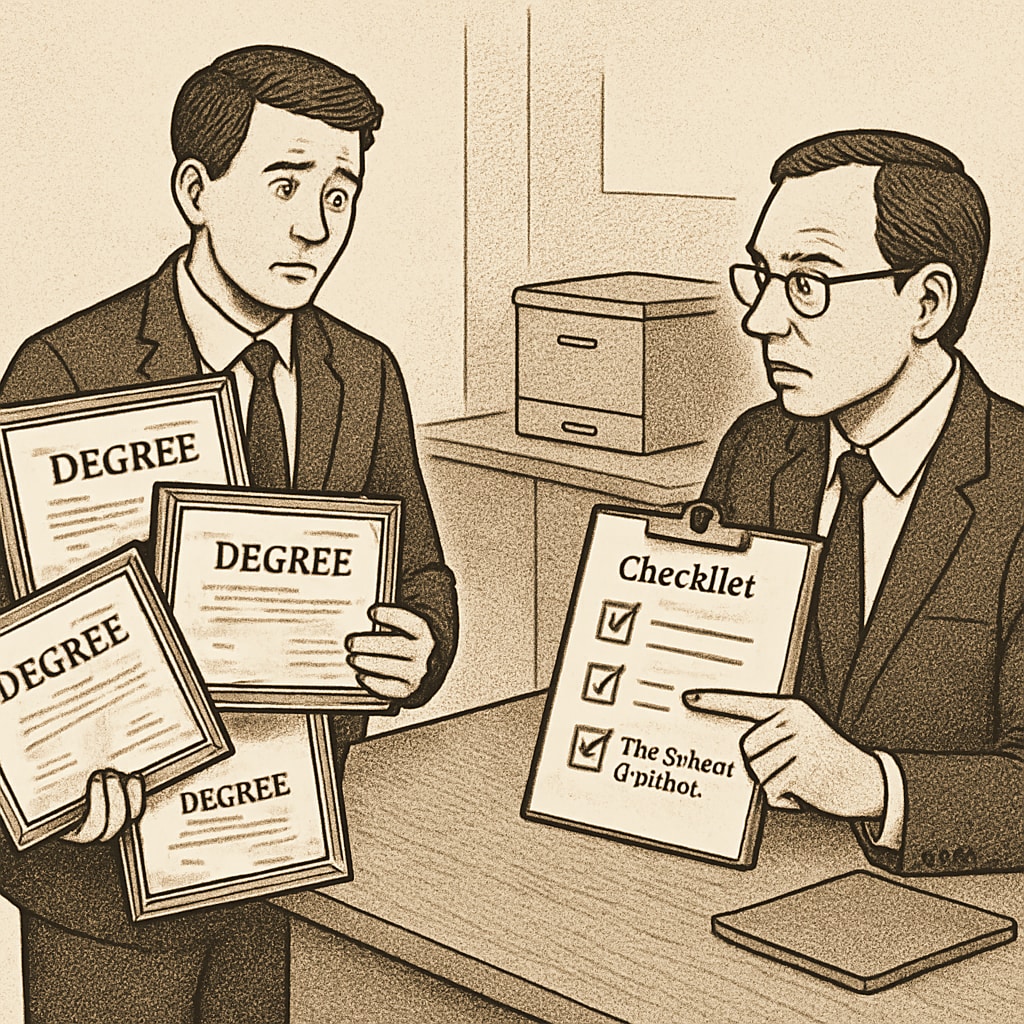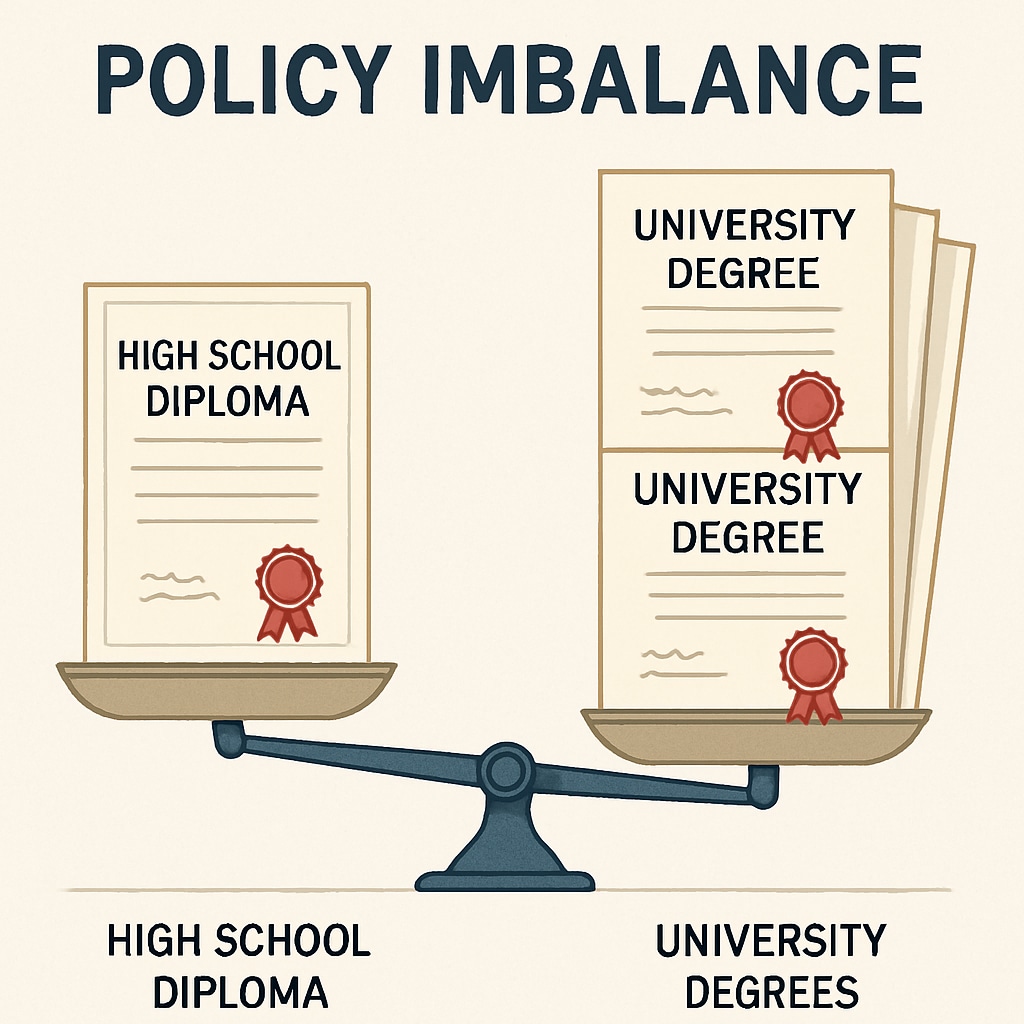Arizona’s recent employment policy that requires a high school diploma but disregards higher education degrees, such as college or postgraduate qualifications, has stirred significant debate. This seemingly paradoxical stance brings the issues of education discrimination, employment requirements, and overarching education policy into sharp focus. While the policy aims to standardize hiring practices, its implications have revealed systemic tensions between K-12 education and higher education in the United States.
Exploring the Policy: High School Diplomas Over University Degrees
The controversy began when Arizona’s government agencies refused to hire an individual with three advanced degrees solely because they lacked a high school diploma. This decision, though aligned with the state’s policy, has been criticized as an example of flawed education credentialing. It raises the question: should educational qualifications be evaluated strictly based on sequential milestones, or should higher education achievements supersede earlier qualifications?
Critics argue that this policy creates unnecessary barriers for highly educated individuals who may have taken unconventional educational paths. For example, those who obtained General Educational Development (GED) certifications or entered college early could find themselves unfairly excluded from opportunities. Proponents, on the other hand, claim that requiring a high school diploma ensures a foundational standard of education for all employees.

The Value of Education: Contrasting K-12 and Higher Learning
At the heart of this debate is the value assigned to different levels of education. High school diplomas often signify a basic understanding of core subjects and critical thinking — skills deemed essential for entry-level employment. However, university degrees represent specialized knowledge and expertise, often in fields directly relevant to specific job roles.
Arizona’s policy seems to prioritize foundational education over specialized learning, potentially devaluing college degrees in the process. This approach could discourage individuals from pursuing higher education, fearing that their efforts may not be recognized in practical employment scenarios. Moreover, it highlights a broader issue in the U.S. education system: the lack of seamless integration between K-12 and higher education pathways.
Implications and Challenges for Job Seekers
The policy’s implications extend beyond individual job seekers. Employers may inadvertently miss out on highly qualified candidates due to rigid hiring criteria. Additionally, the policy could perpetuate socioeconomic disparities, as individuals who bypassed traditional high school education may be disproportionately affected.
To address these challenges, policymakers must consider revising employment criteria to balance inclusivity with standardization. Options could include:
- Recognizing equivalent certifications such as GED or international qualifications.
- Allowing higher education degrees to substitute for high school diplomas in specific cases.
- Creating flexible pathways for non-traditional learners to demonstrate their qualifications.

Future Directions for Education Policy
Arizona’s employment policy reflects broader concerns about how educational credentials are evaluated in the modern workforce. As the job market evolves, there is a growing need for policies that recognize diverse educational journeys. This includes acknowledging the role of alternative education, vocational training, and real-world experience.
In addition, collaboration between K-12 and higher education institutions is essential. By creating smoother transitions and removing redundancies, policymakers can ensure that every level of education is valued appropriately. For Arizona, revisiting its diploma-first policy could be a step toward a more equitable and dynamic employment landscape.
In conclusion, the debate surrounding Arizona’s employment policy underscores the complexities of education systems and their intersection with job markets. While high school diplomas serve as foundational credentials, dismissing higher education achievements risks alienating skilled professionals. A balanced approach that values all educational milestones — from K-12 to advanced degrees — is essential for fostering a fair and inclusive workforce.
Readability guidance: Short paragraphs and lists are used to enhance clarity. Passive voice and long sentences are minimized, ensuring accessibility. Transition words like “however,” “in addition,” and “for example” are incorporated to improve flow and coherence.


